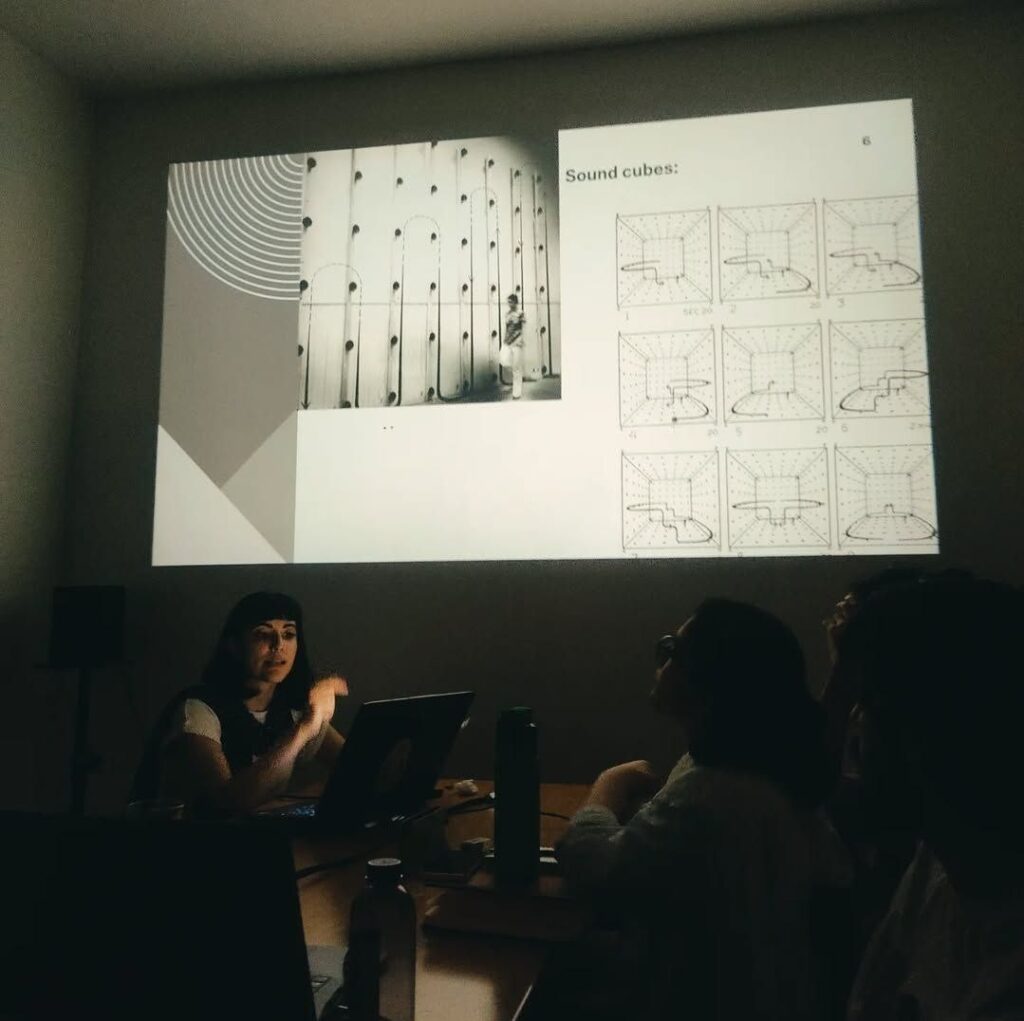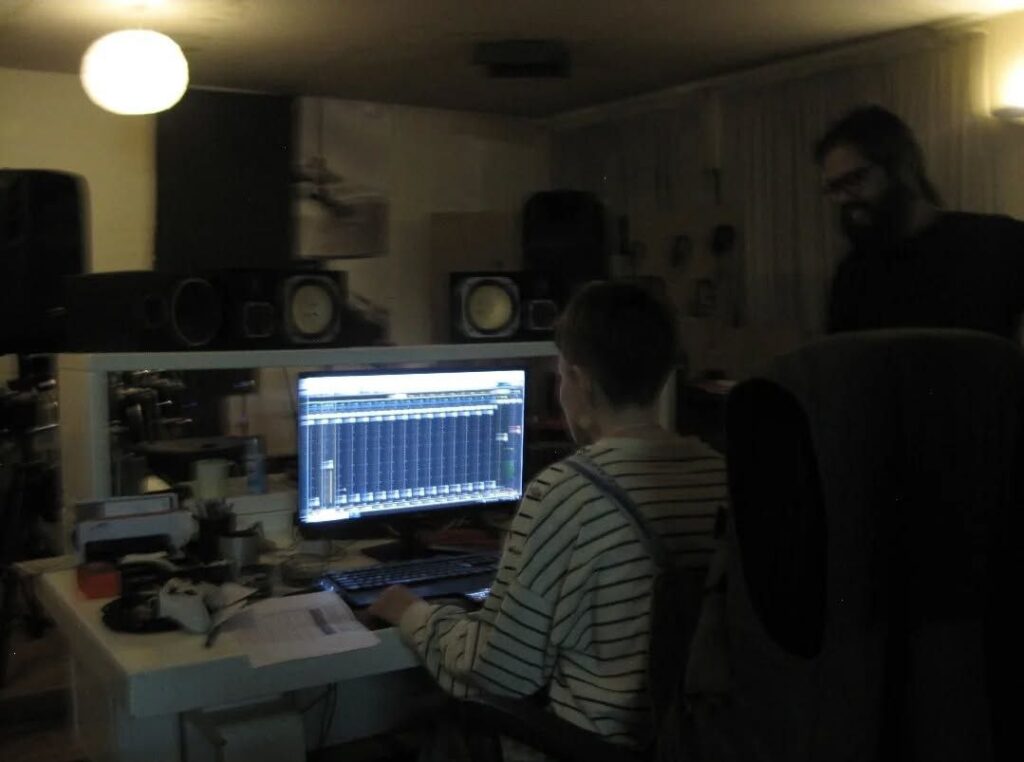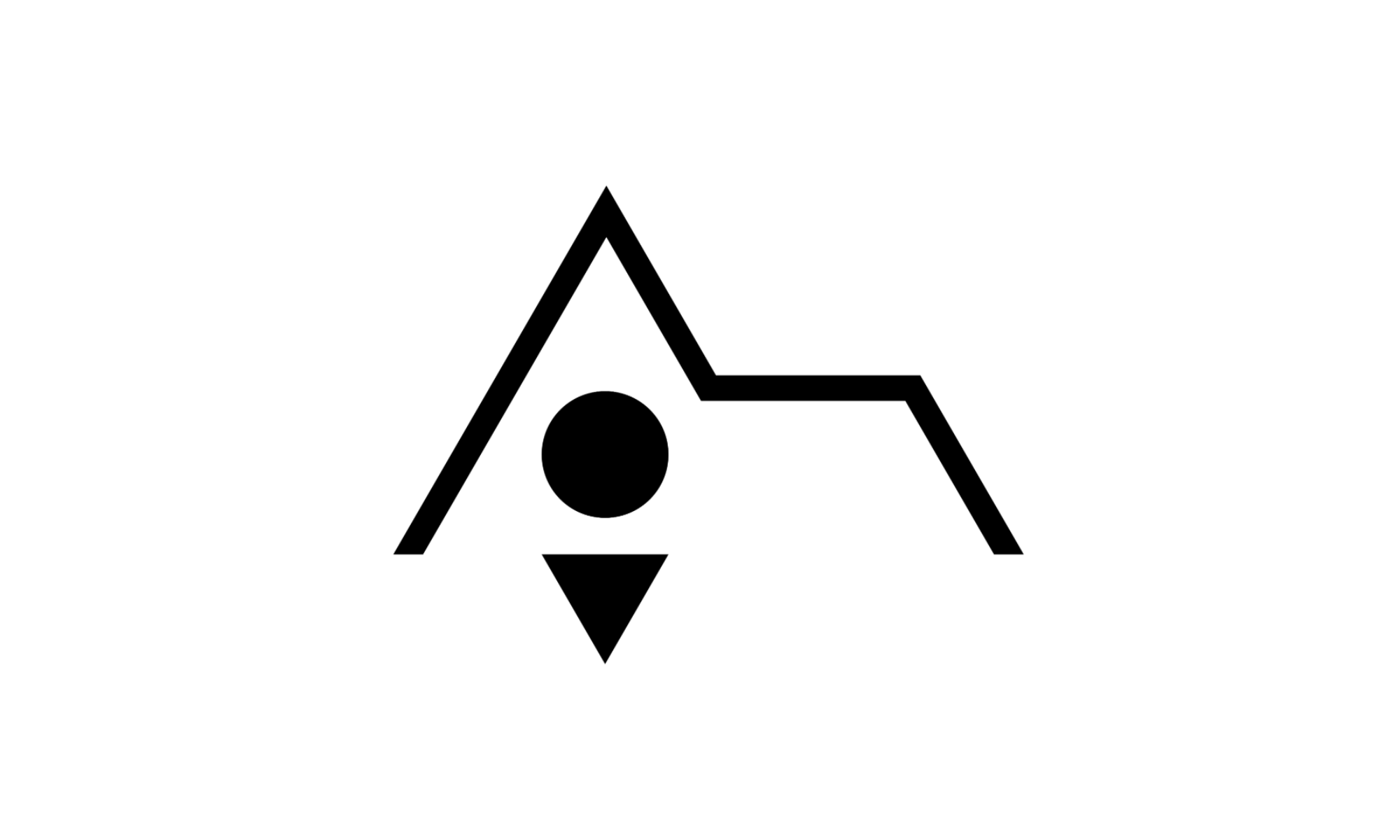The Introduction to Sonic Arts program is designed for individuals with basic sound or musical experiences seeking to expand their understanding or pursue a career in sound art. Independent and tuition-based, the program spans two semesters, each lasting thirteen weeks. Participants will develop foundational knowledge in theoretical and practical aspects of sonic arts, with a focus on building or expanding their portfolios. The curriculum is structured to prepare individuals for advanced topics through subsequent workshops, providing a comprehensive pathway for those aspiring to deepen their engagement in the world of sound art.
The course will be complemented by open workshops, providing graduates with the opportunity to attend according to their individual preferences and interests.

Semester I
– Studio technology, control systems and acoustics
This course will cover basic recording techniques, equipment, terminology, and software applications. Explore the intricacies of acoustics in both critical and non-critical listening environments, developing problem-solving skills crucial for optimal sound quality. Additionally, gain proficiency in control systems and networking protocols within the realm of digital audio, enhancing the ability to navigate and harness the full potential of contemporary audio technology.
– Modular functions and signal flow
The principles and applications of modules (oscillators, filters, amplifiers, envelope generators) in both software and hardware modular sound production systems, this course centers on analyzing signal characteristics at outputs and defining signal functions (audio, control, timing) exclusively through connections to inputs. The curriculum introduces sonic deconstruction and electronic ear training techniques, enabling students to gain a profound understanding of modular sound systems.
– Introduction to Sonic Studies I
This comprehensive theoretical course provides a thorough exploration of contemporary and cultural perspectives within sound studies and the sonic arts, encompassing interdisciplinary concepts, historical frameworks, and varied methodologies. Participants will gain insights into the intersections of sound and media, The course delves into participatory aspects and the role of sound in shaping collective memory based on the analysis of different pieces and the significance of spaces such as the white cube, public areas, and non-places in influencing sonic experiences.
This course offers an in-depth exploration of contemporary composition styles and genres, providing students with a comprehensive understanding of the evolving role of the composer in the 21st century. Through the analysis of various modern compositions and composers, students will gain insights into the techniques and ideas shaping today’s contemporary music scene. Emphasizing creativity and collaboration, the course includes group composition projects that allow students to apply their learning in practical settings.
– Project Seminar I
Practice in parallel to classes developing a project (Practical or theory) based on the projects done in other courses or a new project.

Semester II
– Audio Creativity and Experimentations for New-Media and Sonic Arts
This course delves into the immersive worlds of new media and sound installations, guiding participants through the recreation and analysis of conceptual and technical sonic elements.
As well as providing a foundational introduction to sonic presentation in non critical environments and diverse approaches in the sonic arts, the curriculum explores the use of equipment and various experimental techniques. Participants will also gain insight into the intricacies of sound design and composition specifically tailored for new media, with a specialized focus on the Wwise platform.
– Introduction to Audio and Music Programming
With an introduction the history of computer music, and the evolution of the field. The participants will have a critical introduction to various audio programming languages and each one’s uniqueness. The students will have a hands-on learning in audio programming using Max MSP, with a specific focus on algorithmic and generative composition, as well as procedural sound design. The participants will engage in practical exercises to develop their skills in creating algorithmic compositions and designing unique sonic environments within the context of computer-based music.
– Introduction to Sonic Studies II
Building upon the foundational exploration of sound studies and the sonic arts, this sequel course delves deeper into the field, offering a nuanced examination of emerging themes.
Participants will engage with perspectives on sound art, exploring the intersectionality of sound, identity, and expression, further by analysis of different pieces and scholarly text on the topic.
Building on the foundation of Composition I, Composition II delves into experimental and alternative approaches to music creation. Students will explore unconventional notation systems, including graphic scores and multimedia notation, as innovative ways to represent musical ideas. Through practical exercises, they will create their own experimental scores and explore extended techniques on various instruments, expanding their sonic palette. The course emphasizes effective collaboration between musicians and composers, with group composition projects fostering teamwork. Additionally, improvisation will be a key focus, allowing students to engage dynamically with their compositions and push creative boundaries
– Project Seminar II
Practice in parallel to classes Developing a project (Practical or theory) based on the projects done in other courses or a new project.
